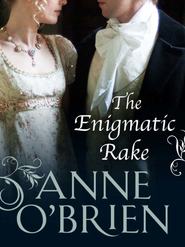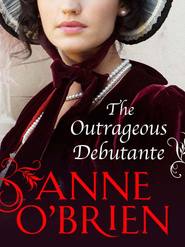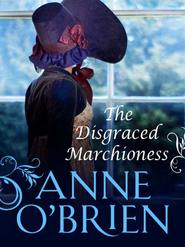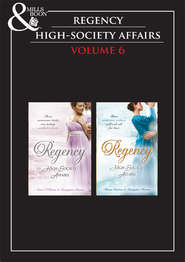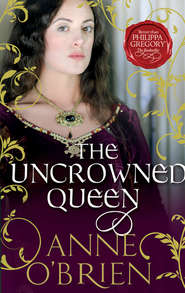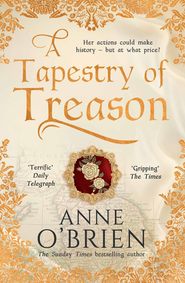По всем вопросам обращайтесь на: info@litportal.ru
(©) 2003-2025.
✖
Marriage Under Siege
Настройки чтения
Размер шрифта
Высота строк
Поля
Marriage Under Siege
Anne O'Brien
‘Anne O’Brien has joined the exclusive club of excellent historical novelists.’ - Sunday Express ‘Will you hold the castle for me, lady, in my name?’ He does not know me. He does not trust me. ‘Do you have to ask?’ With staunchly opposed political views, the new Lord and Lady Mansell are not seeking love during a time of civil war. Francis offered Honoria his name in response to his cousin’s will and the promise of £4000 a year. When their castle is held by Royalist forces Honoria must appear loyal to Francis’s Parliamentarian cause.Working together to protect their lands, the vows made politically become something more. But where does her loyalty lie? Soon scandalous whispers of betrayal and double dealings land at Honoria’s door. And when the prison keys of London start rattling, Francis must question whether the wife he saved has dealt him the ultimate betrayal?Praise for Anne O’Brien:‘One of the best writers around…she outdoes even Philippa Gregory’ The Sun‘Her writing is highly evocative of the time period… O’Brien has produced an epic tale’ Historical Novel Society‘Anne O’Brien’s novels give a voice to the “silent” women of history’ Yorkshire Post‘Once again O’Brien proves herself a medieval history magician, conjuring up a sizzling, sweeping story’ Lancashire Evening Post‘An exciting and intriguing story of love and historical politics. If you enjoy Philippa Gregory and Alison Weir you will love Anne O'Brien’ We Love This Book‘A brilliantly researched and well-told story; you won’t be able to put this book down’ Candis‘A fast paced historical drama that is full of suspense.’ Essentials
About the Author
ANNE O’BRIEN taught history in the East Riding of Yorkshire before deciding to fulfil an ambition to write historical fiction. She now lives in an eighteenth-century timbered cottage with her husband in the Welsh Marches, a wild, beautiful place renowned for its black-and-white timbered houses, ruined castles and priories and magnificent churches. Steeped in history, famous people and bloody deeds, as well as ghosts and folklore, the Marches provide inspiration for her interest in medieval England.
Visit her at www.anneobrienbooks.com (http://www.anneobrienbooks.com/)
Also by
ANNE
O’BRIEN
VIRGIN WIDOW
DEVIL’S CONSORT
PURITAN BRIDE
THE KING’S CONCUBINE
Marriage Under Siege
Anne O’Brien
My Lord,
If you have received this you will be free and in Ludlow with Mary and Joshua. I know that you blame me for your imprisonment at Leintwardine. It was not by my hand, but I fear that nothing I can say, considering our past history, will put my actions into a better light.
I have done what I can to put matters right between us and pray that it will be enough. When we married, I did not realise that divided loyalties, even when they do not exist, could cause so much suspicion and pain.
I pray for your safety. As I told you at Leintwardine, I do not, for one moment, regret our marriage. But sometimes destiny is a stern master and cannot be gainsaid. I understand your sentiments towards me. I am only sorry that I was never able to prove my love for you. I have never found it easy to explain my emotions—and would not have burdened you with them anyway.
For the rest, I cannot write it.
God keep you safe.
Honoria
Prologue
They drew rein at the crossroads.
‘So, Josh—what now? Ludlow is closer than Brampton Percy and it has the guarantee of a welcome and a few home comforts. Do you go home?’
‘Perhaps not.’ Sir Joshua Hopton, eldest son and heir to one of the foremost Parliamentarian families in Ludlow, tried without success to tuck his cloak more securely round him. Rain dripped from the brim of his hat, but was ignored. They were so wet that it mattered little. ‘I have a mind to witness your homecoming as the new Lord—so I will forgo the delights of Ludlow until tomorrow.’
‘Well, then, let us go on. You will no doubt be as welcome as I am.’ A swirl of low cloud and mist hid the faint gleam of cynicism in the cold eyes of Sir Joshua’s companion as he shortened his reins, slippery from the wet. ‘More so, I venture.’
Without further conversation, they turned their horses to the west, towards the Marches’ stronghold of Brampton Percy as a fresh flurry of rain, heavily spiked with hail, pattered with diamond-bright intensity on men and horseflesh alike.
Their escort fell in behind.
Chapter One
An hour later the two round towers, built to overawe the local populace and protect the gateway with its massive double portcullis, loomed dark and forbidding before the small party of travellers. The March day was now drawing to an early close with scudding clouds and a chilling wind that whipped the travel-stained cloaks, tugged at broad-brimmed hats and unsettled the weary horses. It was not weather in which to travel, given the choice. Nor was the castle a welcoming prospect, but the two men approached confidently, knowing that they were expected and that the gate would not be closed against them.
It had been a long journey from London to this small cluster of houses and its imposing castle of Brampton Percy in the depths of the Welsh Marches. Days of poor weather, poor accommodation and even poorer roads in the year of Our Lord 1643. The War, now into its second year, had given rise to any amount of lawlessness, encouraging robbers and thieves to watch the two men with their entourage and their loaded pack horses with more than a little interest, but they had finally arrived at their destination without event. Perhaps the air of determination, of watchfulness and well-honed competence that surrounded the travellers, together with the clear array of weapons, had kept the footpads at bay. Certainly none had been prepared to take the risk.
More problematic had been the small groups of armed forces that frequently travelled the roads in these troubled times. It was not always easy to identify their affinity, to determine friend from foe, Royalist from Parliamentarian. For these two travellers and their dependants, a Parliamentarian force would have signified a friend, an exchange of news, some protection if they chose to travel on together. A Royalist party would have signalled at best instant captivity and a hefty ransom after a long and uncomfortable imprisonment in some local stronghold, at worst, ignominious death, their bodies stripped of everything of value and left to rot in a roadside ditch. So they had travelled carefully and discreetly, their clothes dark and serviceable, nothing to advertise their economic circumstances or social standing other than the quality of their horseflesh and the tally of servants who accompanied them.
On this final afternoon in the rural fastness of north-west Herefordshire, the heavy showers of rain and sleet had cleared, but there was no glimmer of sun or lightening of the heavy clouds, making the sight of the gatehouse doubly welcome. The village street was silent except for chickens scratching in the mud, the inhabitants taking refuge from the elements and the uncertainty, but the travellers were aware of watchful eyes as they passed. Their hands tightened on their sword hilts. No one could afford to be complacent, even when the assurance of hospitality was close at hand.
They made their way past the darkened forge at the crossroads, the timbered inn, the squat shape of St Barnabas’s church with its square tower, until their horses’ hooves clattered on the wet cobbles before the gateway. Immediately they were hailed by a watchman who had been posted to warn of their coming. After the briefest of conversations one of the metal-studded gates was pulled back, allowing them access across a wide dry ditch and beneath the fearsome metal teeth of the portcullis above their heads to the relative sanctuary of an inner passage, which led in turn to an inner courtyard. Someone had hung a lantern in readiness. It guttered, flickering wildly in the draughts, and did little to dispel the shadows of the inner court but yet was a sign of welcome to warm the hearts of the travellers. Servants now emerged from the stableblock and from the heavy wooden door that led from the top of an outdoor stone staircase into the Great Hall of the main house. They were clearly expected. Horses were held, baggage untied, the weary animals led away for food and grooming, servants shepherded in the direction of the kitchen range, leaving the two men to stand and take stock of their surroundings.
‘An impressive establishment.’ Sir Joshua, the shorter of the two, looked around with interest, trying unsuccessfully to keep his already saturated boots out of the standing water that was refusing to drain from the cobbled courtyard. ‘A little medieval for my taste, with little prospect of comfort—but definitely impressive. Built to keep out the Welsh, I expect, as well as the border raiders. Do you remember much of it?’
‘More or less, but I have not been here for years. Lord Edward was not the most welcoming member of the family in recent times.’ His companion, taller, broader, pulled off his hat and ran a hand through the heavy waves of damp hair that clung uncomfortably to his neck.
‘That’s families for you. And now it’s all yours!’
‘Mmm. But do I want it?’ The new owner turned on his heel and surveyed the claustrophobic weight of the heavy stone walls that surrounded them on all four sides, the small windows and the filthy cobbles, with a jaundiced air. ‘There was some argument years back. The story goes, according to my mother, that Lord Edward ordered my father out of the house at the point of a blunderbuss and threatened to fire without warning if he ever set eyes on him or my mother again. Or their children! I believe he described us as hell-born brats. Which was, as I recall, in all honesty the truth!’ A flash of a grin lit his face in the sombre light. ‘It did not trouble my sire overly. He never had any expectations of inheriting, after all. And he hated Edward like the Devil.’
The two men turned towards the outer staircase which would take them up to the main door.
‘Medieval or not,’ the new, albeit reluctant, lord continued, ‘I shall be glad to get out of this wind. I presume you will stay the night, Josh.’
Sir Joshua Hopton laughed. ‘Nothing would get me to travel on tonight. Tomorrow will be soon enough. Lead on, Francis. As this is one of the strongest Royalist areas in the country, I do not fancy my chances if I travel on alone and am recognised. My family is too well known for its disloyal sympathies in this locality.’
‘Come, then. I will be glad to give you the freedom of Brampton Percy’s hospitality. Don’t look too closely to your left, but the rat that has just run along the wall is as large as an Irish wolfhound. Are you sure you wish to stay? Your bedchamber might boast a similar occupant.’
On a companionable laugh, the two men stepped through the doorway into a vast high-beamed room that had been constructed as the Great Hall of the twelfth-century border fortress of Brampton Percy. It was vast and echoing, still in the state of its original construction with an open minstrels’ gallery at the far end and any number of wooden screens, strategically placed in an attempt to deflect the prevalent draughts. Apart from a carved oak chest and two oak chairs with high backs and carved arms, the room was empty.
‘Welcome, my lord.’ A quiet voice spoke from behind them and a dark-suited individual emerged from the doorway, which would undoubtedly lead to the servants’ quarters, to bow with grave courtesy and respect. He was of slight build, elderly, with close-cropped white hair, clad in black. He addressed his next words to the new owner, clearly recognising him. ‘We have been expecting you, Sir Francis. My Lord Mansell, as I should now say. You will most likely not remember me. I am Foxton, Lord Edward’s Steward. If I may say so, my lord, I remember you from your visits here as a boy.’ His face remained solemn, but the wavering light from the candle that he carried caught the faintest of twinkles in his dark eyes.
‘Foxton. Yes, of course.’ A smile crossed Lord Mansell’s dark features, lightening his somewhat bleak expression as memories of happier times touched him. ‘The years pass, do they not? I believe I have one painful memory.’ His smile took on a wry twist. ‘Did you not cuff my ear for breaking a pane of rare coloured glass in the chapel?’
‘Indeed I did, my lord,’ the Steward replied with placid acknowledgement. ‘Children can be most high spirited. As you say, it is many years ago.’ Foxton placed the candle on the oak chest and stepped closer. ‘Allow me to take your cloaks and hats.’
‘This is Sir Joshua Hopton.’ Mansell indicated his fellow traveller. ‘He will stay tonight and then travel on to Ludlow tomorrow. I presume we can accommodate him?’
‘Of course, my lord. There will be no difficulty.’
They unfastened mud-caked cloaks, shaking off excess moisture, and handed over hats and gloves. Mansell looked askance at his boots and breeches, also liberally spattered and stained with signs of hard travel. ‘We are not fit for company, Foxton, but I believe that food and drink would be most welcome before anything else—and a fire. We have travelled far and fast today.’
‘Not to mention a comfortable seat.’ Sir Joshua groaned as he stretched his arms, flexed his shoulders. ‘I was becoming welded to that animal to my detriment. Anything with a cushion will be an answer to a prayer.’
Anne O'Brien
‘Anne O’Brien has joined the exclusive club of excellent historical novelists.’ - Sunday Express ‘Will you hold the castle for me, lady, in my name?’ He does not know me. He does not trust me. ‘Do you have to ask?’ With staunchly opposed political views, the new Lord and Lady Mansell are not seeking love during a time of civil war. Francis offered Honoria his name in response to his cousin’s will and the promise of £4000 a year. When their castle is held by Royalist forces Honoria must appear loyal to Francis’s Parliamentarian cause.Working together to protect their lands, the vows made politically become something more. But where does her loyalty lie? Soon scandalous whispers of betrayal and double dealings land at Honoria’s door. And when the prison keys of London start rattling, Francis must question whether the wife he saved has dealt him the ultimate betrayal?Praise for Anne O’Brien:‘One of the best writers around…she outdoes even Philippa Gregory’ The Sun‘Her writing is highly evocative of the time period… O’Brien has produced an epic tale’ Historical Novel Society‘Anne O’Brien’s novels give a voice to the “silent” women of history’ Yorkshire Post‘Once again O’Brien proves herself a medieval history magician, conjuring up a sizzling, sweeping story’ Lancashire Evening Post‘An exciting and intriguing story of love and historical politics. If you enjoy Philippa Gregory and Alison Weir you will love Anne O'Brien’ We Love This Book‘A brilliantly researched and well-told story; you won’t be able to put this book down’ Candis‘A fast paced historical drama that is full of suspense.’ Essentials
About the Author
ANNE O’BRIEN taught history in the East Riding of Yorkshire before deciding to fulfil an ambition to write historical fiction. She now lives in an eighteenth-century timbered cottage with her husband in the Welsh Marches, a wild, beautiful place renowned for its black-and-white timbered houses, ruined castles and priories and magnificent churches. Steeped in history, famous people and bloody deeds, as well as ghosts and folklore, the Marches provide inspiration for her interest in medieval England.
Visit her at www.anneobrienbooks.com (http://www.anneobrienbooks.com/)
Also by
ANNE
O’BRIEN
VIRGIN WIDOW
DEVIL’S CONSORT
PURITAN BRIDE
THE KING’S CONCUBINE
Marriage Under Siege
Anne O’Brien
My Lord,
If you have received this you will be free and in Ludlow with Mary and Joshua. I know that you blame me for your imprisonment at Leintwardine. It was not by my hand, but I fear that nothing I can say, considering our past history, will put my actions into a better light.
I have done what I can to put matters right between us and pray that it will be enough. When we married, I did not realise that divided loyalties, even when they do not exist, could cause so much suspicion and pain.
I pray for your safety. As I told you at Leintwardine, I do not, for one moment, regret our marriage. But sometimes destiny is a stern master and cannot be gainsaid. I understand your sentiments towards me. I am only sorry that I was never able to prove my love for you. I have never found it easy to explain my emotions—and would not have burdened you with them anyway.
For the rest, I cannot write it.
God keep you safe.
Honoria
Prologue
They drew rein at the crossroads.
‘So, Josh—what now? Ludlow is closer than Brampton Percy and it has the guarantee of a welcome and a few home comforts. Do you go home?’
‘Perhaps not.’ Sir Joshua Hopton, eldest son and heir to one of the foremost Parliamentarian families in Ludlow, tried without success to tuck his cloak more securely round him. Rain dripped from the brim of his hat, but was ignored. They were so wet that it mattered little. ‘I have a mind to witness your homecoming as the new Lord—so I will forgo the delights of Ludlow until tomorrow.’
‘Well, then, let us go on. You will no doubt be as welcome as I am.’ A swirl of low cloud and mist hid the faint gleam of cynicism in the cold eyes of Sir Joshua’s companion as he shortened his reins, slippery from the wet. ‘More so, I venture.’
Without further conversation, they turned their horses to the west, towards the Marches’ stronghold of Brampton Percy as a fresh flurry of rain, heavily spiked with hail, pattered with diamond-bright intensity on men and horseflesh alike.
Their escort fell in behind.
Chapter One
An hour later the two round towers, built to overawe the local populace and protect the gateway with its massive double portcullis, loomed dark and forbidding before the small party of travellers. The March day was now drawing to an early close with scudding clouds and a chilling wind that whipped the travel-stained cloaks, tugged at broad-brimmed hats and unsettled the weary horses. It was not weather in which to travel, given the choice. Nor was the castle a welcoming prospect, but the two men approached confidently, knowing that they were expected and that the gate would not be closed against them.
It had been a long journey from London to this small cluster of houses and its imposing castle of Brampton Percy in the depths of the Welsh Marches. Days of poor weather, poor accommodation and even poorer roads in the year of Our Lord 1643. The War, now into its second year, had given rise to any amount of lawlessness, encouraging robbers and thieves to watch the two men with their entourage and their loaded pack horses with more than a little interest, but they had finally arrived at their destination without event. Perhaps the air of determination, of watchfulness and well-honed competence that surrounded the travellers, together with the clear array of weapons, had kept the footpads at bay. Certainly none had been prepared to take the risk.
More problematic had been the small groups of armed forces that frequently travelled the roads in these troubled times. It was not always easy to identify their affinity, to determine friend from foe, Royalist from Parliamentarian. For these two travellers and their dependants, a Parliamentarian force would have signified a friend, an exchange of news, some protection if they chose to travel on together. A Royalist party would have signalled at best instant captivity and a hefty ransom after a long and uncomfortable imprisonment in some local stronghold, at worst, ignominious death, their bodies stripped of everything of value and left to rot in a roadside ditch. So they had travelled carefully and discreetly, their clothes dark and serviceable, nothing to advertise their economic circumstances or social standing other than the quality of their horseflesh and the tally of servants who accompanied them.
On this final afternoon in the rural fastness of north-west Herefordshire, the heavy showers of rain and sleet had cleared, but there was no glimmer of sun or lightening of the heavy clouds, making the sight of the gatehouse doubly welcome. The village street was silent except for chickens scratching in the mud, the inhabitants taking refuge from the elements and the uncertainty, but the travellers were aware of watchful eyes as they passed. Their hands tightened on their sword hilts. No one could afford to be complacent, even when the assurance of hospitality was close at hand.
They made their way past the darkened forge at the crossroads, the timbered inn, the squat shape of St Barnabas’s church with its square tower, until their horses’ hooves clattered on the wet cobbles before the gateway. Immediately they were hailed by a watchman who had been posted to warn of their coming. After the briefest of conversations one of the metal-studded gates was pulled back, allowing them access across a wide dry ditch and beneath the fearsome metal teeth of the portcullis above their heads to the relative sanctuary of an inner passage, which led in turn to an inner courtyard. Someone had hung a lantern in readiness. It guttered, flickering wildly in the draughts, and did little to dispel the shadows of the inner court but yet was a sign of welcome to warm the hearts of the travellers. Servants now emerged from the stableblock and from the heavy wooden door that led from the top of an outdoor stone staircase into the Great Hall of the main house. They were clearly expected. Horses were held, baggage untied, the weary animals led away for food and grooming, servants shepherded in the direction of the kitchen range, leaving the two men to stand and take stock of their surroundings.
‘An impressive establishment.’ Sir Joshua, the shorter of the two, looked around with interest, trying unsuccessfully to keep his already saturated boots out of the standing water that was refusing to drain from the cobbled courtyard. ‘A little medieval for my taste, with little prospect of comfort—but definitely impressive. Built to keep out the Welsh, I expect, as well as the border raiders. Do you remember much of it?’
‘More or less, but I have not been here for years. Lord Edward was not the most welcoming member of the family in recent times.’ His companion, taller, broader, pulled off his hat and ran a hand through the heavy waves of damp hair that clung uncomfortably to his neck.
‘That’s families for you. And now it’s all yours!’
‘Mmm. But do I want it?’ The new owner turned on his heel and surveyed the claustrophobic weight of the heavy stone walls that surrounded them on all four sides, the small windows and the filthy cobbles, with a jaundiced air. ‘There was some argument years back. The story goes, according to my mother, that Lord Edward ordered my father out of the house at the point of a blunderbuss and threatened to fire without warning if he ever set eyes on him or my mother again. Or their children! I believe he described us as hell-born brats. Which was, as I recall, in all honesty the truth!’ A flash of a grin lit his face in the sombre light. ‘It did not trouble my sire overly. He never had any expectations of inheriting, after all. And he hated Edward like the Devil.’
The two men turned towards the outer staircase which would take them up to the main door.
‘Medieval or not,’ the new, albeit reluctant, lord continued, ‘I shall be glad to get out of this wind. I presume you will stay the night, Josh.’
Sir Joshua Hopton laughed. ‘Nothing would get me to travel on tonight. Tomorrow will be soon enough. Lead on, Francis. As this is one of the strongest Royalist areas in the country, I do not fancy my chances if I travel on alone and am recognised. My family is too well known for its disloyal sympathies in this locality.’
‘Come, then. I will be glad to give you the freedom of Brampton Percy’s hospitality. Don’t look too closely to your left, but the rat that has just run along the wall is as large as an Irish wolfhound. Are you sure you wish to stay? Your bedchamber might boast a similar occupant.’
On a companionable laugh, the two men stepped through the doorway into a vast high-beamed room that had been constructed as the Great Hall of the twelfth-century border fortress of Brampton Percy. It was vast and echoing, still in the state of its original construction with an open minstrels’ gallery at the far end and any number of wooden screens, strategically placed in an attempt to deflect the prevalent draughts. Apart from a carved oak chest and two oak chairs with high backs and carved arms, the room was empty.
‘Welcome, my lord.’ A quiet voice spoke from behind them and a dark-suited individual emerged from the doorway, which would undoubtedly lead to the servants’ quarters, to bow with grave courtesy and respect. He was of slight build, elderly, with close-cropped white hair, clad in black. He addressed his next words to the new owner, clearly recognising him. ‘We have been expecting you, Sir Francis. My Lord Mansell, as I should now say. You will most likely not remember me. I am Foxton, Lord Edward’s Steward. If I may say so, my lord, I remember you from your visits here as a boy.’ His face remained solemn, but the wavering light from the candle that he carried caught the faintest of twinkles in his dark eyes.
‘Foxton. Yes, of course.’ A smile crossed Lord Mansell’s dark features, lightening his somewhat bleak expression as memories of happier times touched him. ‘The years pass, do they not? I believe I have one painful memory.’ His smile took on a wry twist. ‘Did you not cuff my ear for breaking a pane of rare coloured glass in the chapel?’
‘Indeed I did, my lord,’ the Steward replied with placid acknowledgement. ‘Children can be most high spirited. As you say, it is many years ago.’ Foxton placed the candle on the oak chest and stepped closer. ‘Allow me to take your cloaks and hats.’
‘This is Sir Joshua Hopton.’ Mansell indicated his fellow traveller. ‘He will stay tonight and then travel on to Ludlow tomorrow. I presume we can accommodate him?’
‘Of course, my lord. There will be no difficulty.’
They unfastened mud-caked cloaks, shaking off excess moisture, and handed over hats and gloves. Mansell looked askance at his boots and breeches, also liberally spattered and stained with signs of hard travel. ‘We are not fit for company, Foxton, but I believe that food and drink would be most welcome before anything else—and a fire. We have travelled far and fast today.’
‘Not to mention a comfortable seat.’ Sir Joshua groaned as he stretched his arms, flexed his shoulders. ‘I was becoming welded to that animal to my detriment. Anything with a cushion will be an answer to a prayer.’






